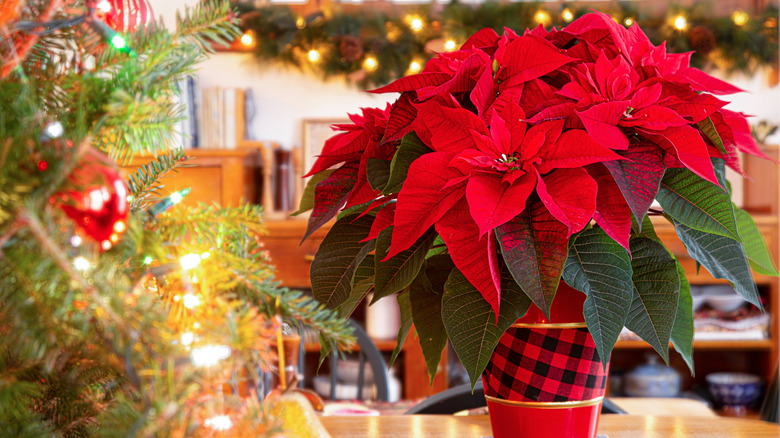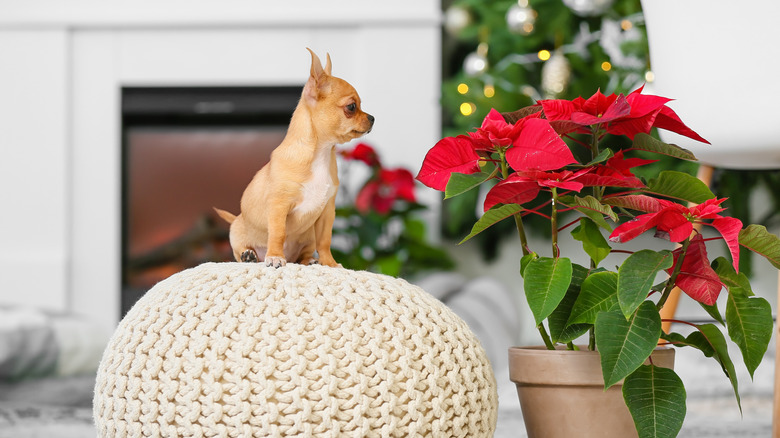Are Poinsettias Toxic? The Truth Behind The Claim
You know the holidays are upon us when you start seeing the bright red leaves of live poinsettia plants on store shelves and in festive displays. This striking plant (Euphorbia pulcherrima) is actually America's best-selling potted flower and has its heyday for about six weeks leading up to Christmas. In fact, December 12th is National Poinsettia Day. Sadly, poinsettias also get a bit of a bad rap in the plant world. For many decades, it's been believed that they're toxic and can harm small children and pets. This is actually a common misconception. In fact, poinsettias are a lot less dangerous than other plants we like to say happy holidays with, such as mistletoe and holly.
Poinsettias are not meant to be ingested, obviously, and that's where most of the concern comes in. It's also true that handling poinsettia plants can cause some minor irritation. But reports of poinsettias' toxic properties to pets and humans are greatly exaggerated and actual data shows that there is really not much of a reason to worry.
What are the actual dangers of poinsettia plants?
While poinsettia plants could cause minor discomfort and irritation if ingested or handled, they are considered only very mildly toxic to your canine or feline friends. If a pet eats enough of the leaves, they may have gastrointestinal side-effects, but more likely, will drool or vomit. If they are exposed to its milky sap, they may experience some mouth discomfort, or skin issues such as swelling and rashes. A vet visit would only be needed in very rare instances if these symptoms seemed severe and didn't resolve quickly.
As for children? A child of 50 lbs. would have to eat more than 500 of the leaves of a poinsettia to even begin to get past safe toxin levels. Despite tens of thousands of concerned calls to poison control over the years, not one single child death by poinsettia ingestion has ever been documented. A bigger concern might be why the child in question is feasting on holiday plants in the first place. Get that kid a candy cane!
A more likely adverse reaction to poinsettia plants actually comes from touching them rather than eating them. Because poinsettia is a member of the euphorbiaceae family of plants (which includes rubber trees), it secretes a milky sap that contains latex. Therefore, those with latex allergies may experience discomfort after coming in contact with poinsettia plants. So enjoy poinsettias throughout the holidays, with no guilt. Just take care to keep them away from snacking kids and pets, and always handle with care.

